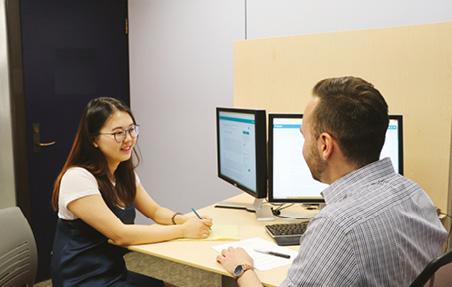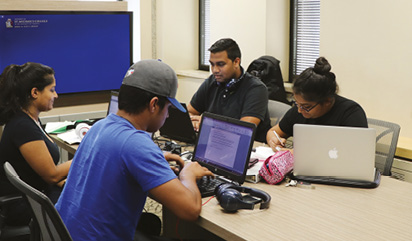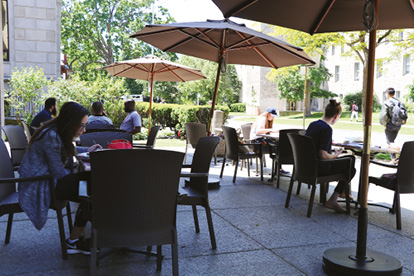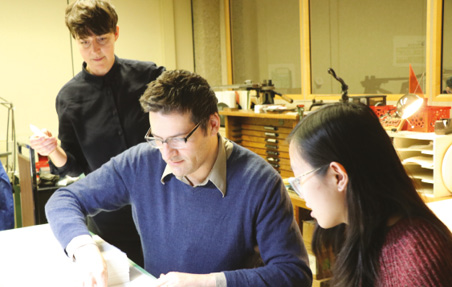Library is Students’ Home Away from Home
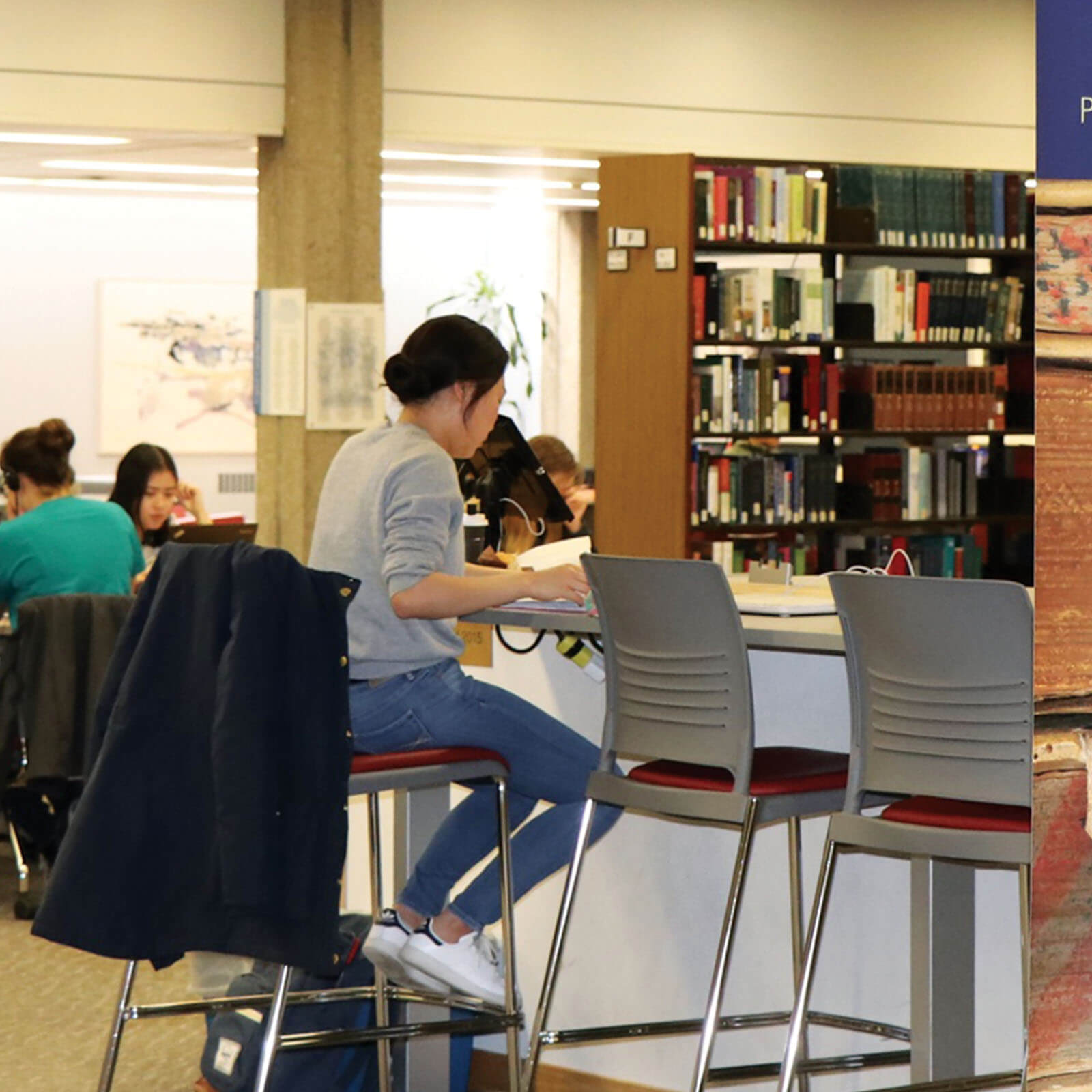
With one of the largest collections on the University of Toronto campus, plenty of research support, and a friendly place to grab a snack, it’s no wonder the John M. Kelly Library ranks as the top home-away-from-home spot for many in the St. Mike’s community. When a recent survey of students, faculty, staff, and alumni asked, “Which community/venue makes you feel most engaged in life at St. Mike’s?” close to 40 per cent of respondents offered Kelly as their answer, beating out all other campus locations.
“We want Kelly to be a place where students can find more than what a traditional library offers,” says Chief Librarian Sheril Hook.
Students are particularly conscious of Kelly’s commitment to them, Hook says, noting that the library’s top priorities include expanding collections and study spaces, as well as finding additional ways to engage the university’s significant Indigenous
and international student communities, helping all students—and especially those far from home—to feel welcome.
One of the many ideas that has emerged is to create more language tables in the Kelly Café. During certain times of the week a café table is set aside for French conversation, and there is nothing to say the concept couldn’t be expanded, she notes.
Hook cites the creation of virtual exhibitions, moves to expand international collections, and even offering touches such as international board games as ways to meet students’ needs, both academic and social, providing the research support they need while adding in a touch of home and an invitation to participate in the community.
While serving St. Michael’s own students, expanded collections also help the broader University of Toronto community, as well as the needs of international researchers, enhancing not only the library’s reputation in the academic world but also that of St. Michael’s as an institution.
Early in the pandemic, for example, Kelly librarians began co-operating with other Toronto School of Theology librarians on a series of Zoom presentations for graduate students about library collections and services, including sessions about HathiTrust, the library catalogue, the Atla Religion Database, Oxford Bibliographies, bibliographic citations, and Zotero.
“We want to create community, and build our collections and programming to be more inclusive,” she says.
“One of the things we are looking at is supporting peer-to-peer mentoring for English language learners,” says Hook, noting that sometimes writing centre help is not enough for students who do not feel confident in English. Having peer-to-peer support for help with language acquisition, especially for instructions and technical terms, can reduce the anxiety of working through challenges.
During the pandemic, Kelly quickly moved to online research consultations, and the uptake has been impressive, she says, adding that librarians are in touch with students as far away as Ethiopia and Somalia.
“Our goal is to empower students in their learning,” Hook says. “We are ready to help them in whatever ways we can that work for them.”
390,000
Students welcomed through the Kelly Library on an average year
305,000
Volumes plus extensive collections of journals, manuscripts and DVDs
75,000
The Kelly Library circulates 75,000 items, second only to the Robarts Library
708
Requests fulfilled by the InfoExpress team
4
The Kelly Library ranks fourth in size on the St. George campus
1
The John M. Kelly Library is the largest federated college library (both in size and collection)
Research and Writing Support at the Kelly Library

For Instruction Archivist James Roussain, one of the great pandemic paradoxes is that even though library access has been restricted for months, staff are seeing—and serving—more students for research help because appointments have moved online.
Kelly librarians routinely dedicate a minimum of five hours a day to research support for St. Mike’s students, as well as for anyone enrolled in St. Michael’s courses.
Virtual appointments have “allowed us to expand our services exponentially,” says Roussain, adding that the number of email inquiries have soared as well. In the 2019–2020 academic year, for example, the total number of research help consultations was 257. As of the end of February this year, the library had already offered 241 appointments.
As well, the library received 339 email research questions (in the period from May 2020 to the end of February 2021) compared to a total of 85 email questions for the same period last academic year (May–April 2019–2020), and 72 in the year before.
Meanwhile, the Writing Centre, which is located in the library, advises students on writing and analysis, had 239 online appointments in Fall 2020.
“Because our reference librarians are generally available 9 a.m. to 5 p.m., some people previously couldn’t make an in-person appointment because of work, commuting or other scheduling conflicts. I hope that when things normalize we maintain a hybrid model because it allows students choice,” he says.
Navigation is at the heart of many of the students’ questions, says Roussain, who also serves as the library’s Interim Head of Public Services.
Often, first-year students who access library help have never written a research paper and don’t know what resources the library has or how to find them. Kelly’s resources alone, before rolling in the vast U of T collections, can seem very daunting at first, he notes.
Each year, Roussain attends Academic Orientation and visits first-year classes to introduce himself to students and tell them about library services.
“I tell them I know it’s hard and that there’s so much that’s new, but that we’ll work together. Sometimes students wait until 3rd or 4th year to come and when they do, they tell me they wished they’d booked an appointment sooner.”
“We are here to help everyone,” he says. “This work is fun. I really enjoy it.”

